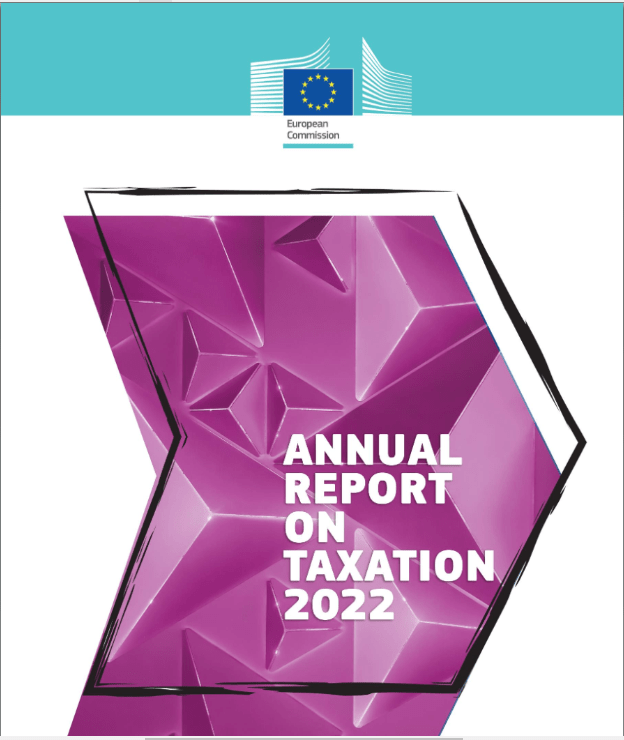Following the Economic and Financial Affairs Council meeting on July 12, the Council adopted Conclusions on the Commission’s 2021 fiscal sustainability report.
The Council (Ecofin):
Welcomes the Commission’s “Fiscal Sustainability Report 2021”, which updates the assessment of fiscal sustainability risks across the European Union, based on an enriched multidimensional approach and drawing from the 2021 Ageing Report. Acknowledges the methodological improvements introduced in the report, notably the simplification and the refinements of the Debt Sustainability Analysis also by taking into account the impact of the NextGenerationEU induced investments on medium-term GDP growth and the presentation of an analysis illustrating climate change-related fiscal risks into the analysis, while noting that the potential impact of the NextGenerationEU induced reforms on medium-term GDP growth has not been taken into account in the analysis so far. Reafirms the different functions of the Commission fiscal sustainability analysis, including the identification of potential fiscal risks in Member States to inform policy requirements and recommendations in the context of the Stability and Growth Pact and the European Semester. Acknowledges that the update within the Commission Spring package overall confirms the findings of the Fiscal Sustainability Report 2021, with few changes observed in the risk classification.

Acuerdo de los ministros de finanzas de la eurozona sobre las orientaciones de la política fiscal
|
Takes note of the Commission’s assessment that overall, there appear to be limited imminent fiscal risks in most Member States, although fiscal and macroeconomic vulnerabilities remain. NextGenerationEU funding and the expected growth impact of investments under the Recovery and Resilience Facility play an important role in mitigating short-term risks. However, high debt levels, which further increased as a consequence of the COVID-19 crisis, and very negative net international investment positions in some Member States represent an important source of short-term vulnerability.
Takes note that over the medium term, under unchanged policies, the Commission’s assessment shows that several Member States face high risks, mainly due to elevated government debt levels and increasing debt trajectories, reflecting a weak initial fiscal position and, in some cases, projected increases in age-related public spending, as well as sensitivity to adverse shocks, including a less favourable interest-growth differential. Recognises that additional factors are considered in the assessment: on the one hand, contingent liabilities, notably linked to government guarantees, are an additional source of risk; on the other hand, the improved structure of government debt, in particular through extended average maturities, and the expected favourable impact of structural reforms under the Recovery and Resilience Facility represent mitigating risk factors. Notes the exceptional uncertainty on the economic outlook created by the Russian war of aggression against Ukraine and the challenges arising from the elevated inflation levels.
Takes note that over the long term, under unchanged policies, the Commission’s assessment shows that several Member States face high risks, mainly due to projected increases in costs of ageing, and in some cases due to vulnerabilities linked to elevated government debt levels. Recalls the important challenges for the sustainability of public finances over the long-term imposed by demographic change.
Recognises that high levels of public debt may hamper economic growth and reduce the ability of Member States to provide counter-cyclical stabilisation in cases of further economic downturn, and may imply negative spillovers particularly within the euro area.
Highlights that the findings of the Fiscal Sustainability Report 2021 call to pursue, once economic conditions allow, fiscal policies aimed at achieving prudent medium-term fiscal positions and ensuring debt sustainability, while enhancing investment, not least to meet the green and digital transitions. Recognises that the implementation of planned structural reforms, including under the Recovery and Resilience Facility, and in line with the country-specific recommendations issued under the European Semester, will be an important element in reducing fiscal sustainability risks. Highlights that the appropriate combination of policies to deal with fiscal sustainability challenges should focus on enhancing growth, sound public finances, including through reforming pension, health care and long-term care systems, and on ensuring macro-financial stability. Notes that the climate change challenge calls for Member States to increasingly consider its implications in budgetary planning, alongside with effective mitigation and adaptation policies.

Annual report on taxation 2022
|
Reaffirms the need to continue appropriate policy action on all age-related areas taking into account country-specific situations, while avoiding measures that reverse sustainability-enhancing reforms already undertaken. These include taking further steps to raise the effective retirement age, including by promoting longer and higher participation in, and avoiding early exit from, the labour market, while taking into account the evolution of life expectancy in the design of pension systems.
Calls on Member States, especially those found at high sustainability risk over the medium term, for the period beyond 2023, to pursue a fiscal policy aimed at achieving prudent medium-term fiscal positions and ensuring credible and gradual debt reduction and fiscal sustainability in the medium term through gradual consolidation, investment and reforms in line with the Country-Specific Recommendations. Invites Member States and the Commission to take into account the findings of the report in their analyses, subsequent policy requirements and recommendations in the framework of the Stability and Growth Pact and of the European Semester. These strategies and developments of the sustainability of public finances will continue to be regularly monitored by the Council and the Commission, including by incorporating in their assessment new developments in macroeconomic and financial conditions, fiscal policies and structural reforms, notably in the areas of pension, healthcare and long-term care systems.
Invites the Commission to undertake its regular in-depth overall assessment of the sustainability of public finances by early 2025 including using the updated age-related expenditure projections in the forthcoming 2024 Ageing Report, and to inform relevant Council preparatory bodies timely of relevant revisions to the underlying methodology of the Debt Sustainability Analysis. This includes improving further the methodologies for assessing the sustainability of public finances and continuing its work, in cooperation with the Member States, on the analysis of climate change related fiscal risks. Invites the Commission to regularly update the Commission’s sustainability assessment in between (through the Debt Sustainability Monitor). The Economic and Financial Committee and the Economic Policy Committee should report back to the Council on the basis of the in-depth overall assessment.
More information: European Council – Press release







Leave a Reply